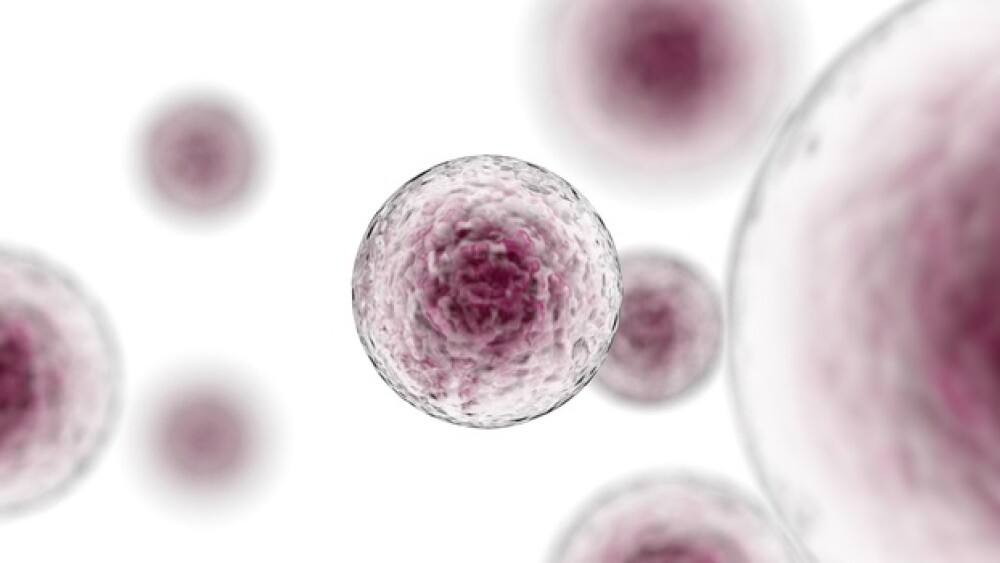Mesenchymal stem cells derived from umbilical cord tissue could help treat ARDS in COVID-19 patients, according to results of a Phase I/IIa clinical trial published by University of Miami researchers.
Mesenchymal stem cells derived from umbilical cord tissue could help treat ARDS in COVID-19 patients, according to results of a Phase I/IIa clinical trial published by University of Miami researchers. The findings, published January 5 in Stem Cell Translational Medicine, showed no evidence of adverse events, increased survival and decreased levels of inflammatory cytokines in 12 patients receiving the cell therapy, compared with 12 patients in a control group.
Although the therapy is just one of at least 25 cell therapies tested in humans over the past year for COVID-19, the Phase II readout makes the University of Miami therapy the most advanced clinical data available for the modality.
Acute respiratory distress syndrome (ARDS) is triggered in COVID-19 patients by a “cytokine storm,” the excessive production of proinflammatory cytokines and is the leading cause of death among COVID-19 patients. Companies like Athersys and Orbcel had previously explored mesenchymal stem cell (MSC) therapies – known to migrate directly to the lungs following infusion – for ARDS before pivoting to trials in COVID-19 patients last year.
Like Orbcel’s experimental therapy, the University of Miami’s MSCs are derived from umbilical cord tissue, a plentiful source as they are harvested from umbilical cords discarded following delivery, and the authors of the paper said the cell populations can be expanded quickly thereafter.
The trial’s primary purpose was safety, and while both the treatment and control groups received the best standard of care, there were no differences reported in serious adverse events between the group receiving infusions with 100 million umbilical cord MSCs and the group receiving a vehicle, and no adverse events observed related to infusion. The safety findings are in line with a Phase I study led by Chinese researchers from the National Clinical Research Center for Infectious Diseases, which showed higher and more frequent infusions of umbilical cord-derived MSCs to be safe in moderate to severe COVID-19 patients with pulmonary distress.
In patients receiving the MSCs, survival at 31 days post-infusion was 91%, compared with 42% in the control group. Camillo Ricordi, an author and director of the Diabetes Research Institute (DRI) and Cell Transplant Center at the University of Miami Miller School of Medicine, said future testing will determine the potential of these MSCs in patients with less severe disease, as well in other inflammatory-related illnesses like Type 1 diabetes.
Athercyl’s MultiStem (HLCM051) is currently in Phase II/III trials for ARDS in severe COVID-19, as is Mesoblast’s and Novartis’s remestemcel-L, bone marrow-derived MSC that have previously been approved in Japan to treat graft-vs.-host disease. Mesoblast reported interim data in December in patients with moderate to severe ARDS showing remestemcel-L was unlikely to meet its primary endpoint of 30-day mortality reduction in 300 patients.






